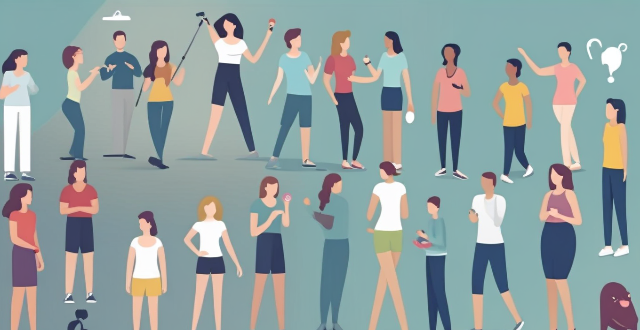Gender biases in sports coaching and leadership positions manifest as discrimination against women, stereotyping of female coaches, and limited opportunities for women. These issues can be addressed by implementing diversity policies, providing mentorship programs, encouraging cultural change, and promoting transparency and accountability within sports organizations.

Gender Biases in Coaching and Leadership Positions within Sports Teams and Organizations
Gender biases can significantly impact coaching and leadership positions within sports teams and organizations. These biases can manifest in various ways, including discrimination against women, stereotyping of female coaches, and limited opportunities for women to advance their careers. In this article, we will explore how gender biases affect coaching and leadership positions and discuss potential solutions to address these issues.
Discrimination Against Women
One of the most prevalent forms of gender bias in sports is discrimination against women. Female coaches often face challenges when trying to secure leadership roles or gain recognition for their accomplishments. This discrimination can take many forms, such as:
- Pay Disparity: Female coaches are often paid less than their male counterparts for doing the same job.
- Hiring Practices: Some sports organizations may prefer to hire male coaches over females, even if the female candidate is more qualified.
- Promotion Opportunities: Women may have fewer opportunities to advance their careers or move up the ranks within a sports organization.
Stereotyping of Female Coaches
Another way that gender biases can affect coaching and leadership positions is through the stereotyping of female coaches. Stereotypes about women's abilities or characteristics can lead to unfair treatment or expectations. For example, some people may assume that female coaches are not as knowledgeable or experienced as male coaches, which can negatively impact their ability to secure leadership roles or be taken seriously by players and colleagues.
Limited Opportunities for Women
Finally, gender biases can limit opportunities for women to advance their careers in sports coaching and leadership positions. This can happen in several ways, including:
- Lack of Mentorship: Female coaches may struggle to find mentors who can help them develop their skills and navigate the industry.
- Networking Challenges: Women may have difficulty building professional networks due to gender imbalances within sports organizations.
- Cultural Barriers: Some sports cultures may be resistant to change and reluctant to embrace female coaches or leaders.
Addressing Gender Biases in Sports Coaching and Leadership
To address gender biases in sports coaching and leadership positions, it is essential to take proactive steps to promote diversity and inclusion within sports organizations. Some potential solutions include:
- Implementing Diversity Policies: Sports organizations should establish policies that promote diversity and prohibit discrimination based on gender or any other protected characteristic.
- Providing Mentorship Programs: Offering mentorship programs specifically designed for female coaches can help them develop their skills and build professional networks.
- Encouraging Cultural Change: Sports organizations should work to create a culture that values diversity and inclusion at all levels of the organization.
- Promoting Transparency and Accountability: Organizations should be transparent about their hiring practices and hold themselves accountable for promoting diversity and inclusion within their coaching staff.
In conclusion, gender biases can significantly impact coaching and leadership positions within sports teams and organizations. By recognizing these biases and taking proactive steps to address them, sports organizations can create a more inclusive environment where all coaches and leaders have equal opportunities to succeed.